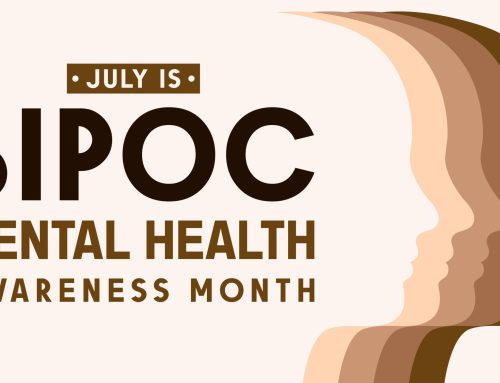Nearly 30 million Americans – 9% of the population – will live with an eating disorder in their lifetimes. But as common as eating disorders are, they’re still shrouded with so much stigma and misinformation. Because of this and other factors, only half of people who have eating disorders ever seek help.
This National Eating Disorder Awareness Week, MINES & Associates is taking the time to shine a light on eating disorders, how they manifest in the workplace, and how you can support colleagues and employees who have eating disorders – and who may be suffering in silence.
What is an eating disorder, and how do they present in the workplace?
Eating disorders are a complex category of mental illness characterized by an unhealthy relationship with food and – usually, although there are some exceptions – body image. There is a wide variety of eating disorder types, and they each have different symptoms. Some eating disorders cause people to severely restrict caloric intake, while others cause people to go through binge-eating episodes.
Generally, eating disorders are some of the most deadly mental illnesses that exist – anorexia nervosa, in particular, has the highest mortality rate of any psychiatric disorder. Eating disorders are not just “extreme dieting” – they are severely harmful to physical and mental health. We need to take them seriously.
With so many Americans living with an eating disorder today, it’s likely that at least one person in your workplace is facing this. However, because of the stigma and misunderstandings surrounding eating disorders, you may not be able to recognize the signs if you’re not aware of how eating disorders present.
Some signs that someone in your workplace may have an eating disorder include:
- Talking a lot about body shape and appearance
- Avoiding work gatherings where food is involved
- Having low energy or appearing lethargic
- Frequent trips to the bathroom, especially after eating
- Changes in appearance, like significant weight loss or gain, or looking pale
- Wearing baggier clothes to hide weight changes
- Constantly checking one’s appearance in mirrors
- Eating in isolation or being overly secretive about food and meals
- Decreased productivity and lack of concentration
- Expressing constant dissatisfaction with one’s body
- Preparing elaborate meals for others, but not eating the meals themselves
Keep in mind that although some eating disorders, like anorexia, can cause significant weight loss for some, most people with eating disorders aren’t underweight. You cannot spot an eating disorder just by looking at someone’s weight or appearance.
People who live with eating disorders can also be very high-functioning in the workplace, so don’t make the mistake of only looking at employees whose performance is faltering.
Perfectionism is a personality trait that’s highly linked with eating disorders in the literature. This perfectionism could lead someone with an eating disorder to reach for the highest achievements and accolades at work. However, over the long term, an eating disorder can negatively affect productivity and focus.
How to support someone with an eating disorder
If someone you work with is living with an eating disorder, they’re likely suffering alone. Eating disorders are often very isolating disorders that cause feelings of deep shame and guilt. People with eating disorders need treatment, but it may take time for them to be ready to come face-to-face with this fact. However, there are ways to support someone with an eating disorder even if they aren’t ready for treatment.
Here are some tips to support an employee or colleague who you suspect has an eating disorder.
Watch how you talk about your own body
Even if you don’t have an eating disorder, many of us have unhealthy views about food and our bodies. Talking negatively about your own body can be triggering for your colleagues with eating disorders.
For example, you might nonchalantly comment about skipping lunch because you overate last night, or make remarks about how a sweater makes you “look fat.” Although you may not live with an eating disorder, these off-hand comments can be triggering for people who do.
Watch the way you talk about your body and eating. You don’t need to express over-the-top positive feelings about your body – this might be triggering as well – but try to stay body-neutral, or avoid talking about your body altogether.
If you express concern, don’t focus on weight
You may have suspicions that someone has an eating disorder, and decide to express your concern. Whether or not you choose to approach the person is up to you and depends greatly on the relationship you have with them. But if you do decide to express concern, don’t focus on their weight – express concern about their overall mental health instead.
For example, let’s say you’ve noticed a colleague rapidly losing weight, although they’ve started wearing baggier clothes to try to hide it. They never seem to eat lunch, saying they had a big breakfast. You notice that they often come into work looking exhausted, and they’re calling out sick much more often than usual.
You may have concerns about an eating disorder, but it’s important not to make assumptions – many health conditions can cause these symptoms. If you choose to express concern, don’t talk about their body or weight. Instead of saying, “You’re looking too skinny lately. Are you eating enough?” say something like, “I’m concerned about you. You seem to be really tired all the time and you’re getting sick a lot. You just don’t seem like yourself. Is everything okay? I’m here to talk if you need to.”
If they share, listen
If a colleague shares with you that they live with an eating disorder, listen with empathy. Understand that telling you about their struggles is a sign of great trust, and respect the conversation as such.
Avoid all judgment; eating disorders are mental health conditions, just like depression or anxiety. The person is not “choosing” to have the relationship that they have with food, so avoid comments like, ‘Why would you starve yourself like that?”.
You may feel the desire to help the person in some way, but it’s best to avoid unsolicited advice. Listen to them openly, and ask how you can support them.
Provide flexible working arrangements
Eating disorders are included in the American Disabilities Act, which means that any employee who discloses that they live with an eating disorder has the right to reasonable accommodations to be able to perform their job duties. Providing flexible working arrangements can help employees with eating disorders continue to succeed in their jobs while recovering.
Examples of workplace accommodations for eating disorders could include:
- Flexible working hours to allow for treatment appointments
- A private eating space during breaks (many people with eating disorders are uncomfortable eating in front of others)
- Leaves of absence for residential treatment, if necessary
- Access to support and resources, like an employee mental health program
Encourage professional treatment
Lastly, eating disorders don’t go away on their own. If your colleague is open to it, encourage professional treatment. Offer to help them look for resources – the difference between, “You should really get therapy,” and “I know it can be overwhelming to look for resources. I can help you call providers on our insurance plan,” can be life-changing.
The MINES & Associates Employee Assistance Program is a great place to start eating disorder support. We offer 24/7 confidential counseling to all of our members, and can refer to more specialized eating disorder resources as necessary. Call 1-800-873-7138 for support now.
To Your Wellbeing,
The MINES Team












Leave A Comment